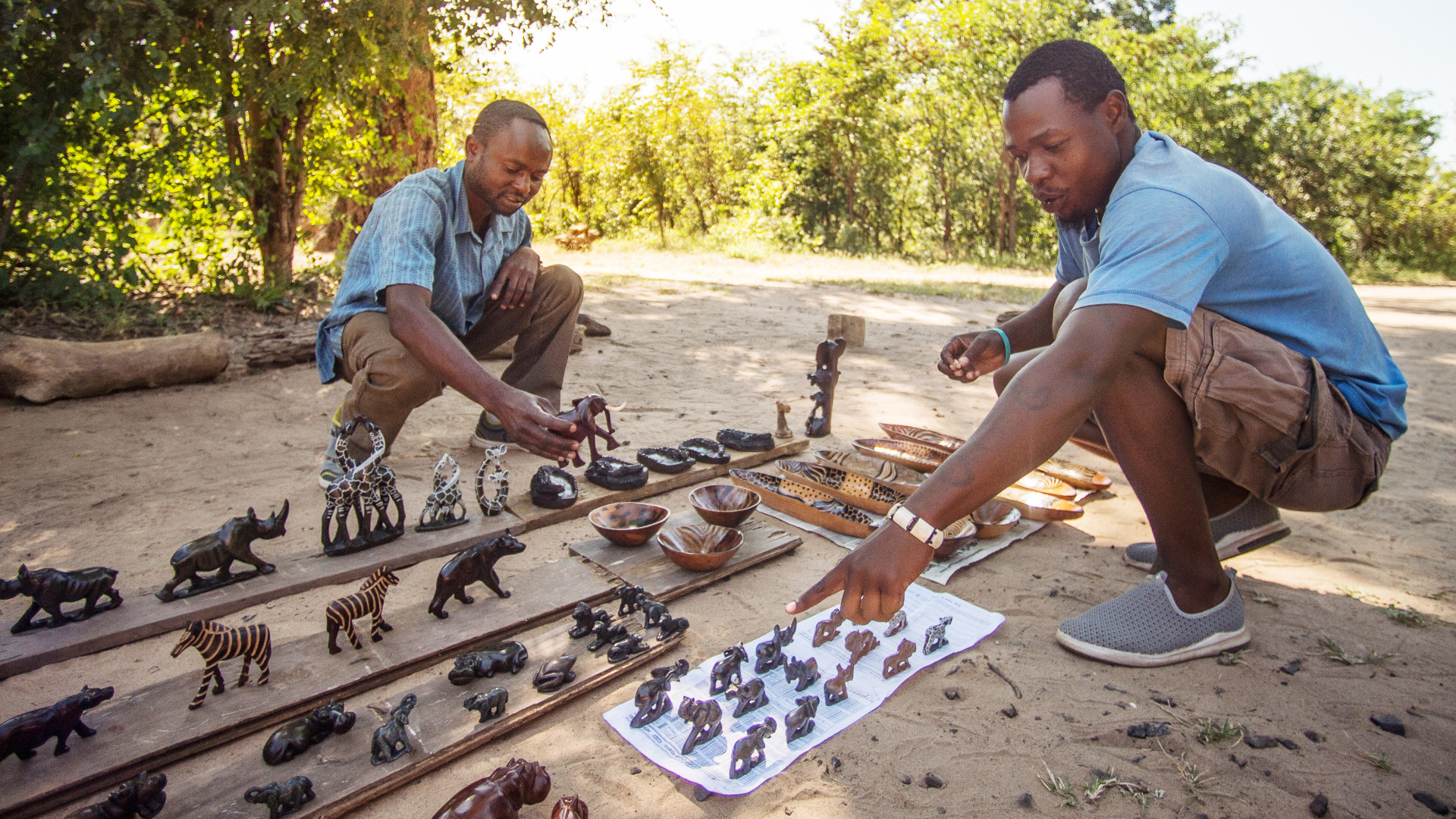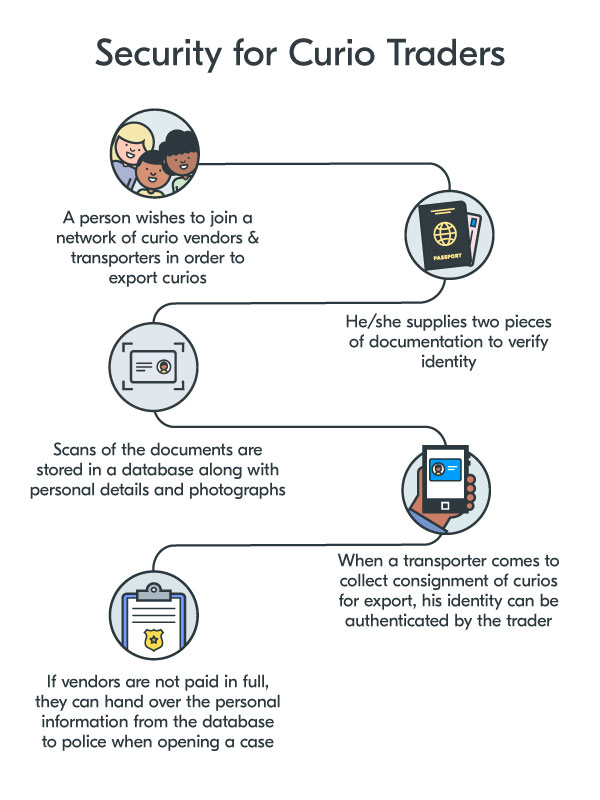
As we go about our social purpose work we regularly get to speak to local, national and international non-profit organisations. Over the years, we’ve found that many struggle to understand the many ways digital identity solutions might help them in their work.
As part of our wider efforts to help the sector make sense of the technology, today we’re publishing the last in a series of articles looking at the use of digital identities in six different humanitarian and environmental settings.
Please note that, while the technology use case is real, the scenarios are hypothetical in nature, and the projects do not exist as stated.
Location
Malawi
Scenario
Security for curio traders
Background
Visitors to Malawi are spoiled for choice when it comes to selecting authentic curios and souvenirs to take home with them. Apart from locally produced paintings, baskets and batiks, there are countless beautiful wooden carvings that are made on site and sold to visitors. Malawi has always been known for its talented wood carvers who create a diversity of sculptures and plaques depicting mostly African scenery, people and animals. Carved pieces by Malawian artists can be found in Buckingham Palace and the Vatican Museum, as well as in several churches in western countries, where they decorate the walls.
Wood carving is a traditional Malawian art form and a skill that is passed from fathers to sons. Selling the pieces to tourists is a way for many families to earn a living as the ornate detail and beauty of the indigenous hardwoods from which they are made, are prized by tourists.
Curio vendors have been assisted by the Malawian government, building markets in which the vendors may display their wares and conduct business. This has resulted in improved sales as the vendors do not need to pack up their wares and take them away each evening or cease business during times of inclement weather. The government promotes wood carving as a potential earner of foreign exchange through exports and a generator of income for poor Malawians.
Challenge
Since early 2020, the curio vendors in Malawi have suffered serious financial setbacks. With the start of the Covid-19 pandemic, international borders have been closed and tourism has ground to a halt. Some vendors have given up and moved back to rural areas where they hope to cultivate enough food to stave off starvation. Others remain at the markets where they spend the days polishing dust off their carvings and hoping that someone will come along and purchase something that day.
A group of struggling vendors have got together to explore the possibility of sending small consignments of carvings to neighbouring South Africa which has a much larger and more affluent population. They hope that there will be a market for their goods, despite the current travel restrictions. Unfortunately, none of the men have passports and they have reservations about trusting an unknown transporter who may cross the border with their carvings and never be seen again.
Solution
The curio vendors set up a network of trusted members using certain digital identifiers.
Members include wood carvers and potential transporters with driving licences and vehicles. To become a member, an individual must produce two significant pieces of identity documentation.
These could be a national ID card, bank card, birth certificate, marriage certificate, driver’s licence or personal testimony from a village head. The documentation is photographed and stored in a database which also includes a photograph of the face of each member.
Thereafter, members can identify themselves as authentic, bona fide traders using their photographs.

This system would allow a registered and known transporter to collect a consignment of high-quality curios from verified members of the group. The transporter may agree to pay a sum of money as a deposit before leaving for the border with the curios. Once the curios have been sold to retailers in South Africa, the customs fees and transporter’s costs can be deducted and the remainder of the income paid to the Malawian vendors before the next consignment is collected.
Read our other scenarios on how digital identity might:
